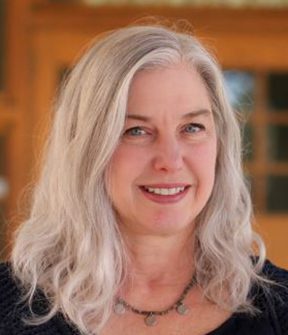“War is hell,” goes the saying, but as for the aftermath, well, it’s complicated.
That will be the theme of Monmouth College’s 40th annual Fox Classics Lecture, which will be presented by Augustana College professor Kirsten Day at 7:30 p.m. Feb. 24 in the Morgan Room on the upper floor of Poling Hall. Titled “Fallout: Age of Heroes, The Trojan War and Its Aftermath,” her talk is free and open to the public.
“The violence and brutality of war is horrific, but in some ways straightforward, while the aftermath is messy and complicated,” said Day, who chairs Augustana’s classics department. “In antiquity, death in war was almost always seen as heroic, but for those who survived, the fallout was not so simple.”
Her talk will examine the aftermath of the Trojan War through a modern lens, considering the post-war experiences of veterans like Odysseus and Aeneas as reflections of real-world responses to trauma, while also centering the direct and indirect effects on the wives, mothers, sisters and daughters who were subject to the repercussions.
In addition to classics, Day also contributes to her school’s women, gender and sexuality studies and the Augustana Prison Education Program. The courses she teaches are all over the classics curriculum, including all levels of Latin and Greek, though often touching on contemporary themes, such as “Women in Classical Antiquity” and “Troy: From Homer to Hollywood.”
Day graduated from Rice University, where she studied ancient Mediterranean civilizations and art, as well as art history, before earning a Ph.D. in comparative literature from the University of Arkansas.
Her research interests focus primarily on ways in which the classical world is depicted in the contemporary one. In addition to her 2016 book Cowboy Classics: The Roots of the American Western in the Epic Tradition, she has published a host of articles on classics in popular culture.
Established in 1985, the Fox Classics Lecture honors the late Bernice L. Fox, who taught classics at Monmouth from 1947-81. The series’ goal is to illustrate the continuing importance of classical studies in the modern world and the intersection of the classics with other disciplines in the liberal arts and sciences.
***Courtesy of Barry McNamara, Monmouth College***








